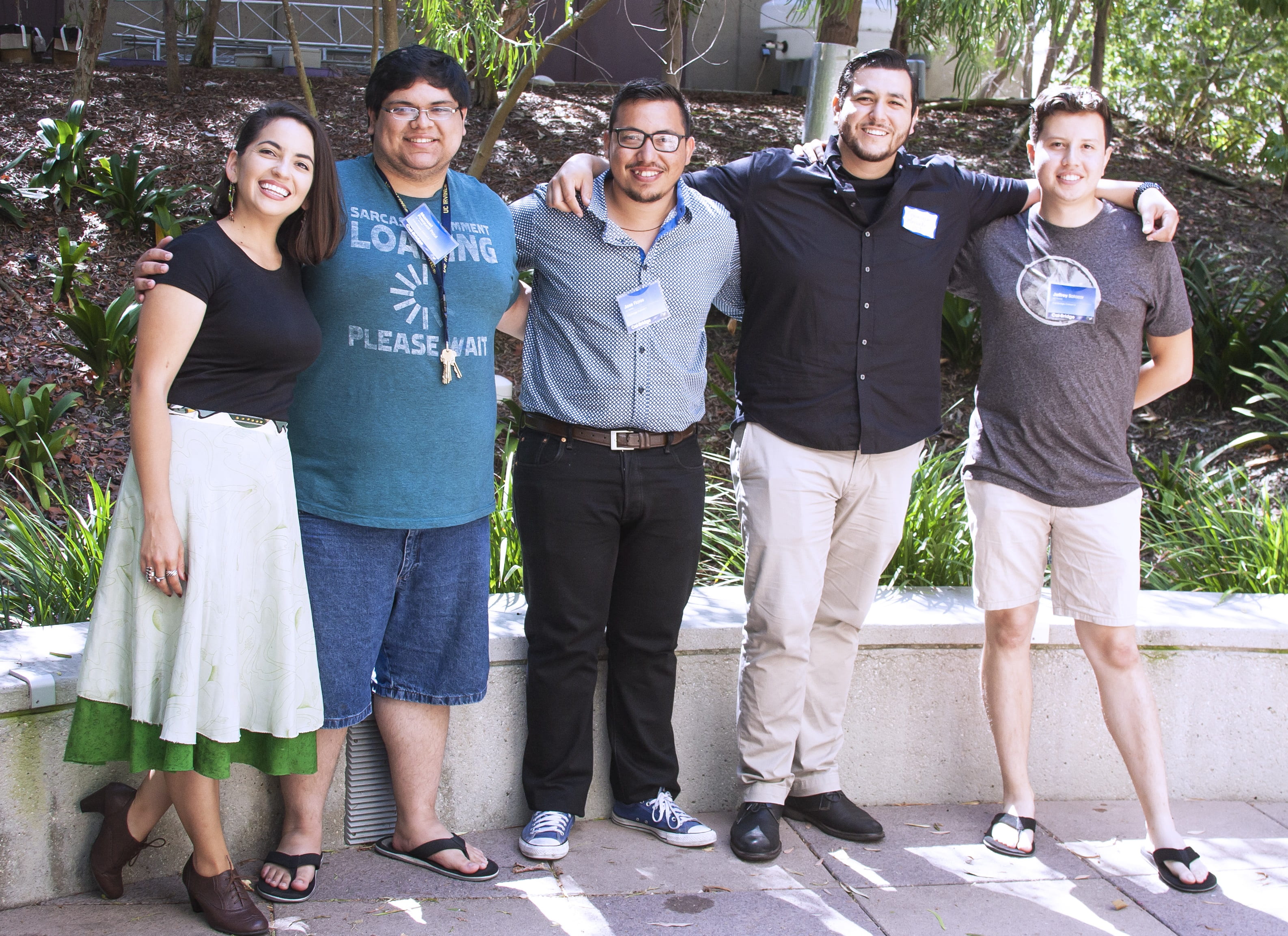Literacy leadership
40-year-old UCI summer institute still elevating K-12 language arts instruction

Every year, starting in February, teachers throughout Southern California apply for the opportunity to be one of 18 to 20 educators who get to spend their summer days, from 9 a.m. to 3 p.m., sitting in a conference room at UCI. Veteran, midcareer and newly minted public and private K-12 schoolteachers from districts in Los Angeles, Orange, Riverside and San Bernardino counties come to the campus five days a week for four weeks to attend the Summer Institute on the Teaching of Composition & Literature.
The intensive, 100-hour seminar is the centerpiece of the UCI Writing Project, launched in 1978 – the 13th location of a statewide initiative that began at UC Berkeley in 1976. It’s “designed to help teachers develop techniques for teaching listening, speaking, reading, writing and critical thinking to their students; enhance their own abilities as writers; and impart what they have learned to other teachers via in-service workshops,” says Writing Project director Carol Booth Olson, UCI professor of education.
The 2018 attendees describe the 40-year-old program as “an epiphany” and “life-changing.”
“We’re not only learning to teach,” says Mary Widtmann, a 20-year veteran who’s currently a sixth-grade teacher at Pomona Elementary School in Costa Mesa. “We’re also becoming the students and going through uncomfortable things in our writing and reading group. You have to make yourself vulnerable to get better at something, to try something new. So the summer institute really helps you push yourself to constantly improve.”
Instruction is interactive. Teachers deliver presentations, hear lectures from outside consultants and experts, participate in technique-sharing and problem-solving exercises, complete writing assignments and conduct peer reviews to improve their own skills. Follow-up activities reinforce and continue the training.
UCI alumna Virginia Nguyen, who teaches ninth-grade history at Portola High School in Irvine, says that she’s already revamped her class plans, based on what she learned from the program. “I love that history is really about the story of humans, but I feel like I’ve been missing opportunities to bring in my students’ experiences,” Nguyen says. “Being a part of this showed me how I can do that. It doesn’t have to be a large project; it can just be moments when I can pull them in using their own personal stories.”
For Steven Kahn, a third-year geometry and computer science teacher at Esperanza High School in Anaheim, participation helped him “link the language arts cognitive strategies to the eight standards for mathematical practice, which are big in Common Core now. I love opportunities to meet and collaborate with other educators, especially across content areas. It allows you to think about your own subject in a totally different context. And I was able to teach a lesson where I got the English teachers excited about doing math, so that was pretty cool.”
Although he’s taught for 16 years, John Haug, a freshman English teacher at El Modena High School in Orange, took away from the seminar “myriad ideas and inspirations” for the upcoming school year. “I thought the summer institute would be a perfect opportunity to learn how to effectively help my students overcome their challenges and obstacles when it comes to writing,” he says. “Now I’m starting to panic because there are so many strategies I want to employ. Which one do I start with?”
Participant Amanda Agnello teaches eighth-grade literature and composition at KIPP Los Angeles College Preparatory School in Boyle Heights. Throughout her 10 years there, she’s been looking for ways to “empower my students to take ownership over their grammar lessons, so it’s not ‘worksheet drill and kill’ – to take more responsibility for their own use of language for clarity and beauty. The program’s teachings are research-based, which is really powerful to me, because now I can validate my ideas. I am chock-full of new and innovative strategies for teaching that will help my students learn to write without being bored to death.”
Looking back on the past four decades, director Olson attributes the enduring relevance of the Writing Project and popularity of the summer institute to their constant evolution, adapting to current education standards and successful teaching methods. As for the next 40 years, she says: “I hope that the legacy of the Writing Project continues to thrive through all the teachers we have reached through the program and those we annually prepare for the profession here at UCI.”

